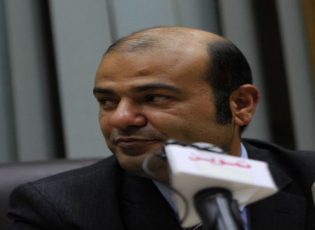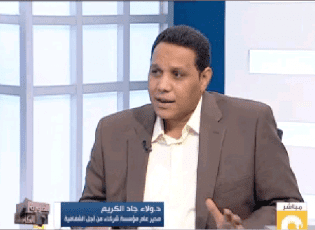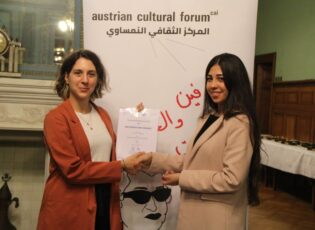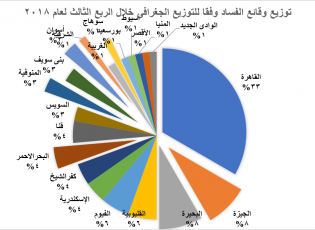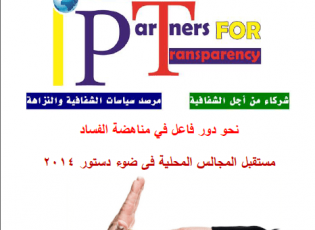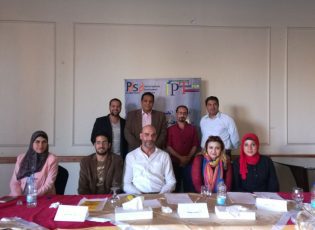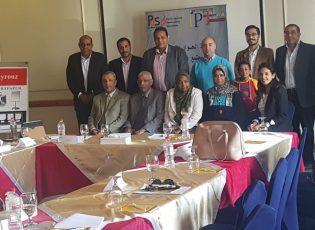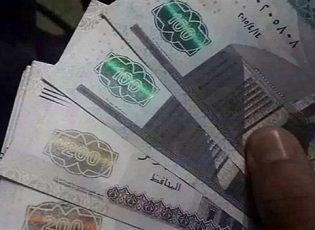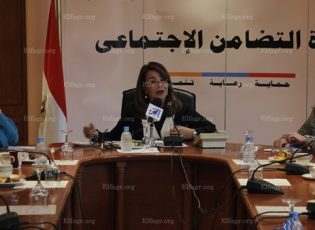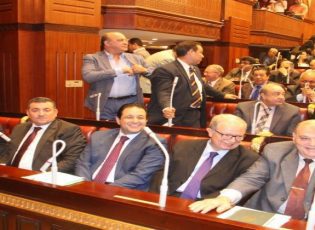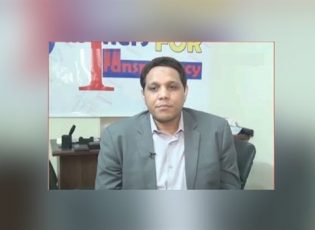Middle east
Report - Zaki knew him
In a special follow-up to the newspaper "Asharq Al-Awsat News", the organizations of Partners for Transparency, the Arab Program for Human Rights Activists, Egyptians Without Borders, and the Foundation for Studies and Programs for Integrity and Transparency for Human Rights expressed their deep astonishment at the incomprehensible and unjustified behavior of the "Ministry of Social Solidarity" and their insistence on Excluding the "four" organizations, which are the Egyptian civil entities most concerned with the issue of combating corruption - from participating in forums and meetings organized and in which the Ministry participates to discuss the role of civil society organizations in combating corruption.
The Ministry of Social Solidarity, the General Union of Civil Associations and Institutions, and the Egyptian Society for Cooperative Studies had participated in organizing a forum last Monday, corresponding to July 31, 2017 under the title “The Role of Civil Society in Fighting Corruption.” The Ministry also called two months earlier for a meeting with civil organizations concerned with combating corruption. Corruption is to receive proposals that can be funded through the Associations Support Fund without inviting any of the four organizations.
It is worth noting that the four organizations signatories to the statement are almost the only organizations in Egypt that dealt with the issue of combating corruption institutionally as a major concern for years, and each of them has implemented a large number of projects and programs related to combating corruption and promoting integrity, transparency and accountability practices in cooperation with a number of institutions and partners International and local development, as well as the organizations submitted dozens of theses, recommendations, proposals for legislation and systematic reports in order to reform the legislative and institutional environment, as well as their participation in dozens of national, regional and international forums within the framework of the same issue.
The efforts of the four organizations were and are still of interest, appreciation and wide participation of parliamentary parties, experts, government officials and those concerned with the issue of combating corruption, as well as of great interest from various media outlets, which are well-known and documented efforts and roles of the Ministry of Social Solidarity as the ministry responsible for implementing the law governing the work of civil organizations. .
In addition, the organizations of Partners for Transparency, the Arab Program for Human Rights Activists, Egyptians Without Borders, and the Foundation for Studies and Programs of Integrity and Transparency for Human Rights confirm that the behavior of the Ministry of “Social Solidarity” expresses its “negative view” of organizations that work in the field of fighting corruption from a defensive perspective. It is based on the call for reforming public policies, developing legislation and preparing the institutional environment, which clearly indicates the lack of the ministry’s seriousness in dealing with the issue with the attention it deserves, and this is what we infer from the ministry’s officials ’insistence on excluding serious expertise that has an integrated vision emanating from a comprehensive awareness of the requirements of Anti-corruption and an accurate reading of the relevant international and constitutional obligations.
The organizations added to Asharq Al-Awsat that civil work in Egypt is based on a sectoral division through which organizations are active in specific areas of work, each of which has its importance in comprehensive community development, and while recognizing the importance of all sectors of civil work, the logic requires setting objective standards on the basis of which Inviting specific organizations to participate in different forums according to the main area of concern of each organization, and on this basis, the Ministry of Solidarity inviting organizations not operating in the anti-corruption sector to forums related to this issue is a kind of tampering and shuffling papers and giving preference to non-professional standards and attention to form at the expense of content and results.
The four signatory organizations do not intend, behind their statement, to enter into a quarrel with the Ministry of Solidarity, despite the fact that many of the Ministry’s practices are entrenched for that. However, they wish to register a position that rejects “standardizing” civil work, and tries to draw attention to the danger of continuing the policy of “dropping” defensive human rights aspects of The accounts of the executive authorities in dealing with reform issues in general, and the issue of combating corruption in particular, and warns against insisting on following the approach of trustworthy people at the expense of experts, and giving priority to political and security classifications.
The Ministry of Social Solidarity, the General Union of Civil Associations and Institutions, and the Egyptian Society for Cooperative Studies had participated in organizing a forum last Monday, corresponding to July 31, 2017 under the title “The Role of Civil Society in Fighting Corruption.” The Ministry also called two months earlier for a meeting with civil organizations concerned with combating corruption. Corruption is to receive proposals that can be funded through the Associations Support Fund without inviting any of the four organizations.
It is worth noting that the four organizations signatories to the statement are almost the only organizations in Egypt that dealt with the issue of combating corruption institutionally as a major concern for years, and each of them has implemented a large number of projects and programs related to combating corruption and promoting integrity, transparency and accountability practices in cooperation with a number of institutions and partners International and local development, as well as the organizations submitted dozens of theses, recommendations, proposals for legislation and systematic reports in order to reform the legislative and institutional environment, as well as their participation in dozens of national, regional and international forums within the framework of the same issue.
The efforts of the four organizations were and are still of interest, appreciation and wide participation of parliamentary parties, experts, government officials and those concerned with the issue of combating corruption, as well as of great interest from various media outlets, which are well-known and documented efforts and roles of the Ministry of Social Solidarity as the ministry responsible for implementing the law governing the work of civil organizations. .
In addition, the organizations of Partners for Transparency, the Arab Program for Human Rights Activists, Egyptians Without Borders, and the Foundation for Studies and Programs of Integrity and Transparency for Human Rights confirm that the behavior of the Ministry of “Social Solidarity” expresses its “negative view” of organizations that work in the field of fighting corruption from a defensive perspective. It is based on the call for reforming public policies, developing legislation and preparing the institutional environment, which clearly indicates the lack of the ministry’s seriousness in dealing with the issue with the attention it deserves, and this is what we infer from the ministry’s officials ’insistence on excluding serious expertise that has an integrated vision emanating from a comprehensive awareness of the requirements of Anti-corruption and an accurate reading of the relevant international and constitutional obligations.
The organizations added to Asharq Al-Awsat that civil work in Egypt is based on a sectoral division through which organizations are active in specific areas of work, each of which has its importance in comprehensive community development, and while recognizing the importance of all sectors of civil work, the logic requires setting objective standards on the basis of which Inviting specific organizations to participate in different forums according to the main area of concern of each organization, and on this basis, the Ministry of Solidarity inviting organizations not operating in the anti-corruption sector to forums related to this issue is a kind of tampering and shuffling papers and giving preference to non-professional standards and attention to form at the expense of content and results.
The four signatory organizations do not intend, behind their statement, to enter into a quarrel with the Ministry of Solidarity, despite the fact that many of the Ministry’s practices are entrenched for that. However, they wish to register a position that rejects “standardizing” civil work, and tries to draw attention to the danger of continuing the policy of “dropping” defensive human rights aspects of The accounts of the executive authorities in dealing with reform issues in general, and the issue of combating corruption in particular, and warns against insisting on following the approach of trustworthy people at the expense of experts, and giving priority to political and security classifications.
Short link: https://pfort.org/en/?p=2413


